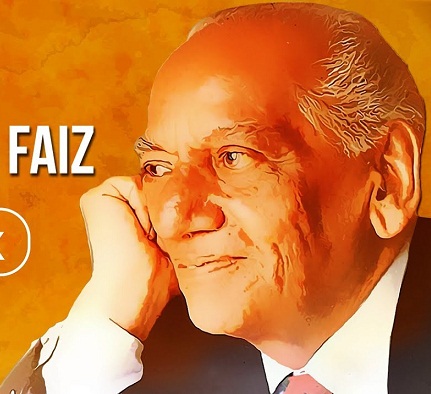Last Updated on January 2, 2020 3:05 am by INDIAN AWAAZ

WEB DESK
The IIT in Kanpur has set up a panel to decide whether the poem “Hum dekhenge, lazim hai ki hum bhi dekhenge”, penned by Faiz Ahmad Faiz, is anti-Hindu.
The panel has been set up in response to complaints filed by a faculty member who claimed that the students, during a protest, sang this poem which was anti-Hindu.
The panel will also probe whether the students violated prohibitory orders clamped in the city on the day of the march, whether they posted objectionable content on the social media and whether the Faiz poem is anti-Hindu.
The poem reads thus — “Lazim hai ke hum bhi dekhenge. Jab arz-e-Khuda ke kaabe se. Sab bhut uthwaye jayenge, Hum ahl-e-safa mardood-e-harm. Masnad pe bithaye jayenge. Sab taaj uchale jaenge. Sab takht giraye jayenge. Bas naam rahega Allah ka. Hum dekhenge.”
It was the last line that has turned into a bone of contention. Translated into English, it means, ‘When thrones will vanish, only Allah’s name will remain’.
The panel will also probe whether the students violated prohibitory orders clamped in the city on the day of the march, whether they posted objectionable content on the social media and whether the Faiz poem is anti-Hindu.
The complaint was based on two lines of the poem, which read: “Sab takht giraye jayenge. Bas naam rahega Allah ka. Hum dekhenge. (When thrones will vanish, only Allah’s name will remain)”, triggered the professor to file a complaint.
The poem was written by Faiz in reference to military dictator Zia-ul-Haq in 1979 and was against the military rule in Pakistan. Faiz, an atheist, was known for his revolutionary writings that kept him in jail for years.
It may be recalled that the IIT-Kanpur students had taken out a peaceful march on the campus on December 17 in support of the students of Jamia Millia Islamia and during the march, the students sang the Faiz poem.
According to IIT Deputy director Manindra Agarwal: “In the video, the students are seen reciting the Faiz poem which can also be perceived as being anti-Hindu.”
The IIT faculty member, in his complaint, has alleged that the students made anti-India and communal statements during their demonstration in solidarity with the Jamia students
